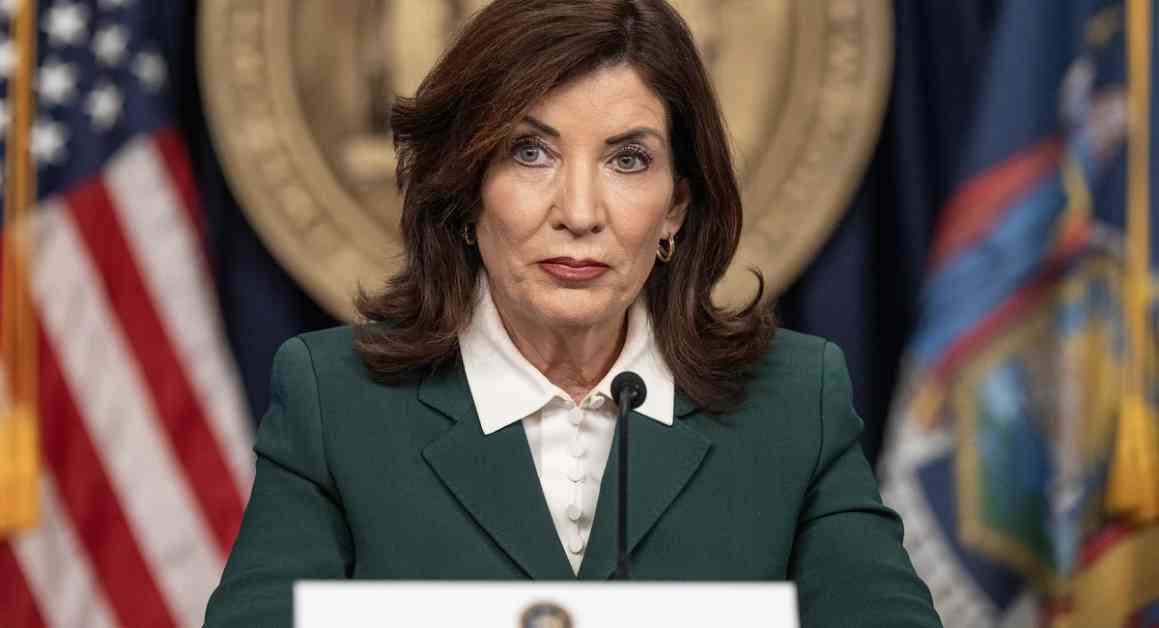Gov. Kathy Hochul Vetoes Restoration of Jury Rights Bill
New York Governor Kathy Hochul made headlines on Saturday by vetoing a bill that could have transformed the state’s criminal justice system. The proposed legislation aimed to allow individuals with felony convictions to serve on juries, a move that many reform advocates believed would address systemic biases in the courtroom.
The bill, which had garnered support from state lawmakers earlier this year, sought to overturn New York’s long-standing ban on jury service for those with felony convictions. Under the proposed law, individuals would only be eligible to serve on juries after completing their sentences, including any parole requirements. However, Governor Hochul ultimately decided to reject the measure, citing “technical and operational challenges” that could complicate its implementation.
The veto came as a blow to advocates who have been pushing for reforms to make the justice system more equitable. They argue that lifetime bans on jury service for individuals with felony convictions disproportionately impact people of color and prevent defendants from having a jury of their peers. Governor Hochul’s decision puts New York in the company of 24 other states that impose similar restrictions, according to research from the Harvard Kennedy School’s Malcolm Wiener Center for Social Policy.
Reactions to the Veto
Supporters of the bill, including the New York Civil Liberties Union, had praised the state Legislature for passing the legislation just before the end of its annual session. The bill’s sponsors, State Senator Cordell Cleare and Assemblymember Jeff Aubry, had worked tirelessly to get it approved. However, Governor Hochul’s veto dashed their hopes of seeing the new law come into effect.
Expert Opinion on the Impact
Legal experts, such as Phil Desgranges from The Legal Aid Society, have emphasized the importance of having diverse jury pools to address racial disparities in the legal system. Desgranges stated that vetoing the legislation would only perpetuate the stigmatization of communities of color, which make up a significant portion of the population affected by the current jury ban.
As the debate continues on how to reform the criminal justice system, Governor Hochul’s veto has sparked discussions about the challenges of implementing changes to address systemic biases. Despite the setback, advocates remain committed to pushing for reforms that will ensure fair and just outcomes for all individuals involved in the legal process.












